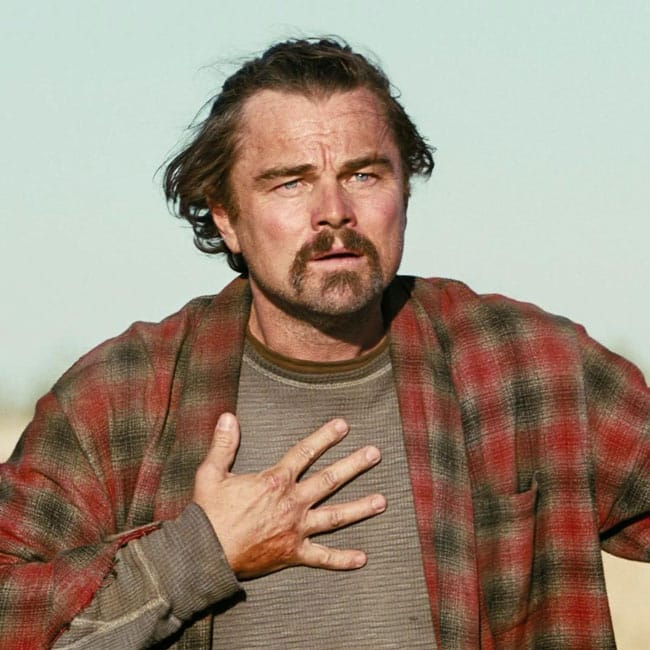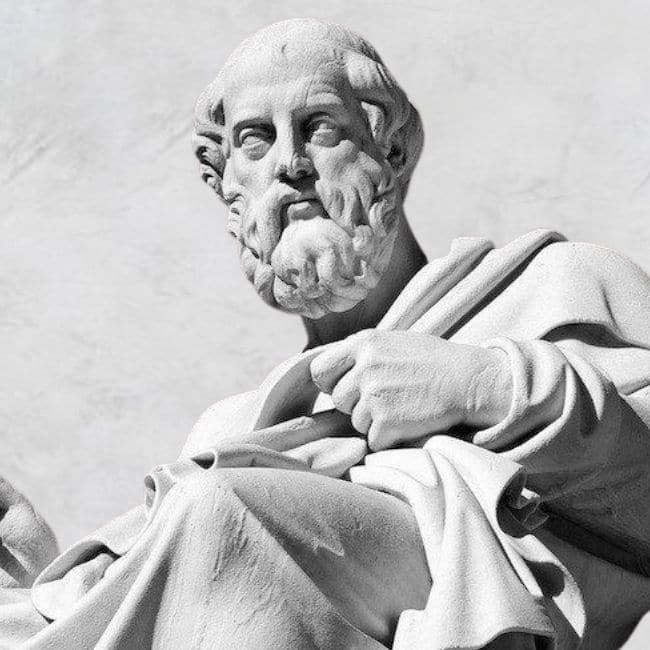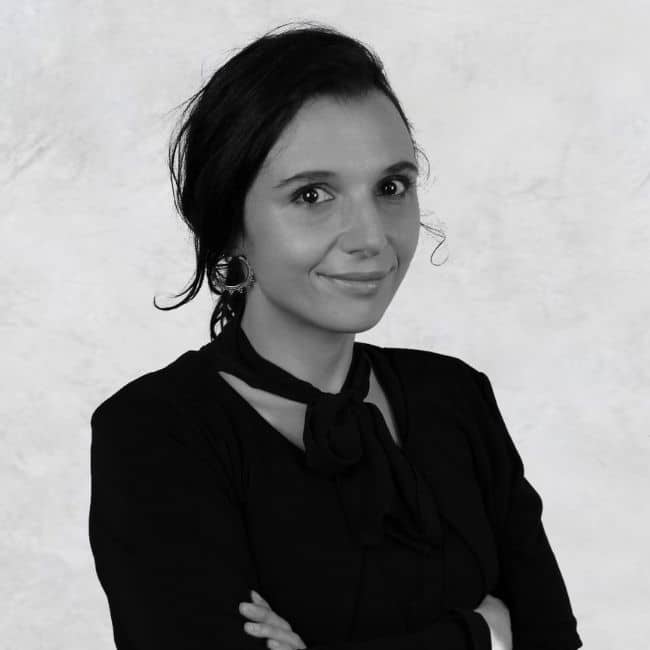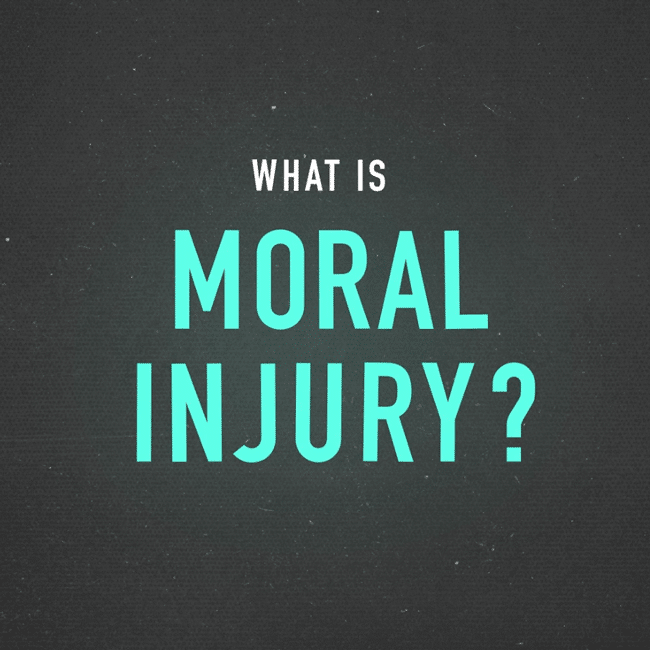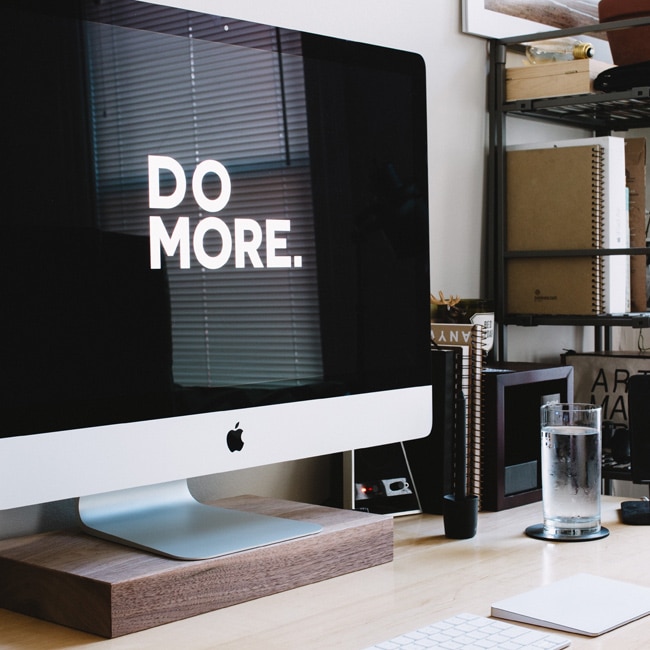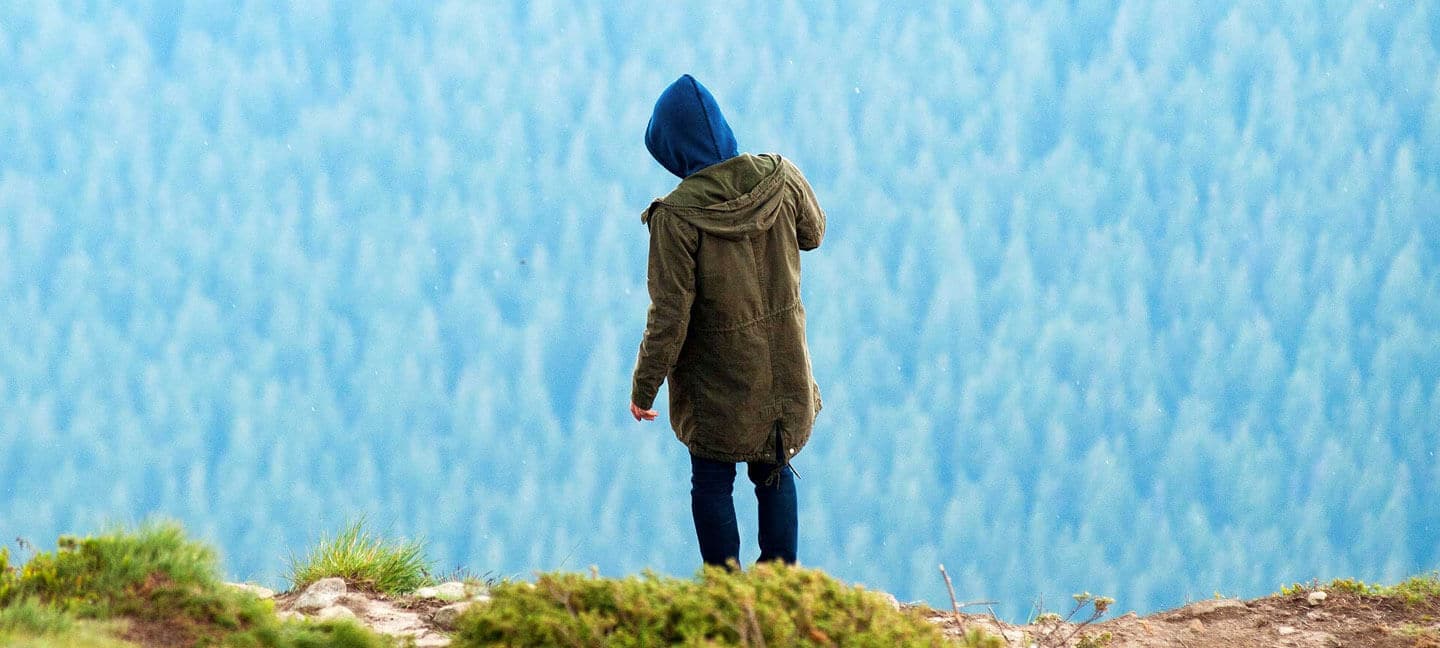Ethics Explainer: Lying

Lying is something we’ve all done at some point and we tend to take its meaning for granted, but what are we really doing when we lie, and is it ever okay?
A person lies when they:
- knowingly communicate something false
- purposely communicate it as if it was true
- do so with an intention to deceive.
The intention to deceive is an essential component of lying. Take a comedian, for example – they might intentionally present a made-up story as true when telling a joke, engaging in satire, etc. However, the comedian’s purpose is not to deceive but to entertain.
Lying should be distinguished from other deviations from the truth like:
- Falsehoods – false claims we make while believing what we say to be true
- Equivocations – the use of ambiguous language that allows a person to persist in holding a false belief.
While these are different to lying, they can be equally problematic. Accidentally communicating false information can still result in disastrous consequences. People in positions of power (e.g., government ministers) have an obligation to inform themselves about matters under their control or influence and to minimise the spread of falsehoods. Having a disregard for accuracy, while it is not lying, should be considered wrong – especially when as a result of negligence or indifference.
The same can be said of equivocation. The intention is still there, but the quality of exchange is different. Some might argue that purposeful equivocation is akin to “lying by omission”, where you don’t actively tell a lie, but instead simply choose not to correct someone else’s misunderstanding.
Despite lying being fairly common, most of our lives are structured around the belief that people typically don’t do it.
We believe our friends when we ask them the time, we believe meteorologists when they tell us the weather, we believe what doctors say about our health. There are exceptions, of course, but for the most part we assume people aren’t lying. If we didn’t, we’d spend half our days trying to verify what everyone says!
In some cases, our assumption of honesty is especially important. Democracies, for example, only function legitimately when the government has the consent of its citizens. This consent needs to be:
- free (not coerced)
- prior (given before the event needing consent)
- informed (based on true and accessible information)
Crucially, informed consent can’t be given if politicians lie in any aspects of their governance.
So, when is lying okay? Can it be justified?
Some philosophers, notably Immanuel Kant, argue that lying is always wrong – regardless of the consequences. Kant’s position rests on something called the “categorical imperative”, which views lying as immoral because:
- it would be fundamentally contradictory (and therefore irrational) to make a general rule that allows lying because it would cause the concepts of lies and truths to lose their meaning
- it treats people as a means rather than as autonomous beings with their own ends
In contrast, consequentialists are less concerned with universal obligations. Instead, their foundation for moral judgement rests on consequences that flow from different acts or rules. If a lie will cause good outcomes overall, then (broadly speaking) a consequentialist would think it was justified.
There are other things we might want to consider by themselves, outside the confines of a moral framework. For example, we might think that sometimes people aren’t entitled to the truth in principle. For example, during a war, most people would intuit that the enemy isn’t entitled to the truth about plans and deployment details, etc. This leads to a more general question: in what circumstances do people forfeit their right to the truth?
What about “white lies”? These lies usually benefit others (sometimes at the liar’s expense!) or are about trivial things. They’re usually socially acceptable or at least tolerated because they have harmless or even positive consequences. For example, telling someone their food is delicious (even though it’s not) because you know they’ve had a long day and wouldn’t want to hurt their feelings.
Here are some things to ask yourself if you’re about to tell a white lie:
- Is there a better response that is truthful?
- Does the person have a legitimate right to receive an honest answer?
- What is at stake if you give a false or misleading answer? Will the person assume you’re telling the truth and potentially harm themselves as a result of your lie? Will you be at fault?
- Is trust at the foundation of the relationship – and will it be damaged or broken if the white lie is found out?
- Is there a way to communicate the truth while minimising the hurt that might be caused? For example, does the best response to a question about an embarrassing haircut begin with a smile and a hug before the potentially hurtful response?
Lying is a more complex phenomenon than most people consider. Essentially, our general moral aversion to it comes down to its ability to inhibit or destroy communication and cooperation – requirements for human flourishing. Whether you care about duties, consequences or something else, it’s always worth questioning your intentions to check if you are following your moral compass.
Ethics in your inbox.
Get the latest inspiration, intelligence, events & more.
By signing up you agree to our privacy policy
You might be interested in…
Opinion + Analysis
Relationships
Only love deserves loyalty, not countries or ideologies
Opinion + Analysis
Business + Leadership, Relationships
Employee activism is forcing business to adapt quickly
Opinion + Analysis
Society + Culture, Politics + Human Rights, Relationships
The personal vs the political: Resistance in One Battle After Another
Opinion + Analysis
Health + Wellbeing, Relationships
The etiquette of gift giving
BY The Ethics Centre
The Ethics Centre is a not-for-profit organisation developing innovative programs, services and experiences, designed to bring ethics to the centre of professional and personal life.
Big Thinker: Plato

Plato (~428 BCE—348 BCE) is commonly considered to be one of the most influential writers in the history of philosophy.
Along with his teacher, Socrates, and student, Aristotle, Plato is among the most famous names in Western philosophy – and for good reason. He is one of the only ancient philosophers whose entire body of work has passed through history in-tact over the last 2,400 years, which has influenced an incredibly wide array of fields including ethics, epistemology, politics and mathematics.
Plato was a citizen of Athens with high status, born to an influential, aristocratic family. This led him to be well-educated in several fields – though he was also a wrestler!
Influences and writing
Plato was hugely influenced by his teacher, Socrates. Luckily, too, because a large portion of what we know about Socrates comes from Plato’s writings. In fact, Plato dedicated an entire text, The Apology of Socrates, to giving a defense of Socrates during his trial and execution.
The vast majority of Plato’s work is written in the form of a dialogue – a running exchange between a few (often just two) people.
Socrates is frequently the main speaker in these dialogues, where he uses consistent questioning to tease out thoughts, reasons and lessons from his “interlocutors”. You might have heard this referred to as the “Socratic method”.
This method of dialogue where one person develops a conversation with another through questioning is also referred to as dialectical. This sort of dialogue is supposed to be a way to criticise someone’s reasoning by forcing them to reflect on their assumptions or implicit arguments. It’s also argued to be a method of intuition and sometimes simply to cause puzzlement in the reader because it’s unclear whether some questions are asked with a sense of irony.
Plato’s revolutionary ideas span many fields. In epistemology, he contrasts knowledge (episteme) with opinion (doxa). Interestingly, he says that knowledge is a matter of recollection rather than discovery. He is also said to be the first person to suggest a definition of knowledge as “justified true belief”.
Plato was also very vocal about politics, though many of his thoughts are difficult to attribute to him given the third person dialogue form of his writings. Regardless, he seems to have had very impactful perspectives on the importance of philosophy in politics:
“Until philosophers rule as kings or those who are now called kings and leading men genuinely and adequately philosophize, that is, until political power and philosophy entirely coincide, while the many natures who at present pursue either one exclusively are forcibly prevented from doing so, cities will have no rest from evils, … nor, I think, will the human race.”
Allegories
You might have also heard of The Allegory of the Cave. Plato reflected on the idea that most people aren’t interested in lengthy philosophical discourse and are more drawn to storytelling. The Allegory of the Cave is one of several stories that Plato created with the intent to impart moral or political questions or lessons to the reader.
The Ring of Gyges is another story of Plato’s that revolves around a ring with the ability to make the wearer invisible. A character in the Republic proposes this idea and uses it to discuss the ethical consequences of the item – namely, whether the wearer would be happy to commit injustices with the anonymity of the ring.
This kind of ethical dilemma mirrors contemporary debates about superpowers or anonymity on the internet. If we aren’t able to be held accountable, and we know it, how is that likely to change our feelings about right and wrong?
The Academy
The Academy was the first institution of higher learning in the Western world. It was founded by Plato some time after he turned 30, after inheriting the property. It was free and open to the public, at least during Plato’s time, and study there consisted of conversations and problems posed by Plato and other senior members, as well as the occasional lecture. The Academy is famously where Aristotle was educated.
After Plato’s death, the Academy continued to be led by various philosophers until it was destroyed in 86 BC during the First Mithridatic War. However, Platonism (the philosophy of Plato) continued to be taught and revived in various ways and has had a lasting impact on many areas of life continuing today.
Ethics in your inbox.
Get the latest inspiration, intelligence, events & more.
By signing up you agree to our privacy policy
You might be interested in…
Opinion + Analysis
Relationships
Only love deserves loyalty, not countries or ideologies
Opinion + Analysis
Health + Wellbeing, Relationships
Seven COVID-friendly activities to slow the stress response
Opinion + Analysis
Politics + Human Rights, Relationships
Whose home, and who’s home?
Opinion + Analysis
Relationships, Science + Technology
Should you be afraid of apps like FaceApp?
BY The Ethics Centre
The Ethics Centre is a not-for-profit organisation developing innovative programs, services and experiences, designed to bring ethics to the centre of professional and personal life.
Ethics Explainer: Epistemology

Mostly, we take “knowledge” or “knowing” for granted, but the philosophical study of knowledge has had a long and detailed history that continues today.
We constantly claim to ‘know things’. We know the sun will rise tomorrow. We know when we drop something, it will fall. We know a factoid we read in a magazine. We know our friend’s cousin’s girlfriend’s friend saw a UFO that one time.
You might think that some of these claims aren’t very good examples of knowledge, and that they’d be better characterised as “beliefs” – or more specifically, unjustified beliefs. Well, it turns out that’s a pretty important distinction.
“Epistemology” comes from the Greek words “episteme” and “logos”. Translations vary slightly, but the general meaning is “account of knowledge”, meaning that epistemology is interested in figuring out things like what knowledge is, what counts as knowledge, how we come to understand things and how we justify our beliefs. In turn, this links to questions about the nature of ‘truth’.
So, what is knowledge?
A well-known, though still widely contentious, view of knowledge is that it is justified true belief.
This idea dates all the way back to Plato, who wrote that merely having a true belief isn’t sufficient for knowledge. Imagine that you are sick. You have no medical expertise and have not asked for any professional advice and yet you believe that you will get better because you’re a generally optimistic person. Even if you do get better, it doesn’t follow that you knew you were going to get better – only that your belief coincidentally happened to be true.
So, Plato suggested, what if we added the need for a rational justification for our belief on top of it being true? In order for us to know something, it doesn’t just need to be true, it also needs to be something we can justify with good reason.
Justification comes with its own unique problems, though. What counts as a good reason? What counts as a solid foundation for knowledge building?
The two classical views in epistemology are that we should rely on the perceptual experiences we gain through our senses (empiricism) or that we should rely first and foremost on pure reason because our senses can deceive us (rationalism). Well-known empiricists include John Locke and David Hume; well-known rationalists include René Descartes and Baruch Spinoza.
Though Plato didn’t stand by the justified true belief view of knowledge, it became quite popular up until the 20th century, when Edmund Gettier blew the problem wide open again with his paper “Is Justified True Belief Knowledge?”.
Since then, there has been very little consensus on the definition, with many philosophers claiming that it’s impossible to create a definition of knowledge without exceptions.
Some more modern subfields within epistemology are concerned with the mechanics of knowledge between people. Feminist epistemology, and social epistemology more broadly, deals with a lot of issues that raise ethical questions about how we communicate and perceive knowledge from others.
Prominent philosophers in this field include Miranda Fricker and José Medina. Fricker developed the concept of “epistemic injustice”, referring to injustices that involve the production, communication and understanding of knowledge.
One type of knowledge-based injustice that Fricker focuses on, and that has large ethical considerations, is testimonial injustice. These are injustices of a kind that involve issues in the way that testimonies – the act of telling people things – are communicated, understood, believed. It largely involves the interrogation of prejudices that unfairly shape the credibility of speakers.
Sometimes we give people too much credibility because they are attractive, charismatic or hold a position of power. Sometimes we don’t give people enough credibility because of a race, gender, class or other forms of bias related to identity.
These types of distinctions are at the core of ethical communication and decision-making.
When we interrogate our own views and the views of others, we want to be asking ourselves questions such as: Have I made any unfair assumptions about the person speaking? Are my thoughts about this person and their views justified? Is this person qualified? Did I get my information from a reliable source?
In short, a healthy degree of scepticism (and self-examination) should be used to filter through information that we receive from others and to question our initial attitudes towards information that we sometimes take for granted or ignore. In doing this, we can minimise misinformation and make sure that we’re appropriately treating those who have historically been and continue to be silenced and ignored.
Ethics draws attention to the quality and character of the decisions we make. We typically hold that decisions are better if well-informed … which is another way of saying that when it comes to ethics, knowledge matters!
Ethics in your inbox.
Get the latest inspiration, intelligence, events & more.
By signing up you agree to our privacy policy
You might be interested in…
Opinion + Analysis
Health + Wellbeing, Relationships
This isn’t home schooling, it’s crisis schooling
Opinion + Analysis
Health + Wellbeing, Relationships, Society + Culture
Look at this: the power of women taking nude selfies
Opinion + Analysis
Relationships
Violent porn denies women’s human rights
Explainer
Relationships
Ethics Explainer: Moral Absolutism
BY The Ethics Centre
The Ethics Centre is a not-for-profit organisation developing innovative programs, services and experiences, designed to bring ethics to the centre of professional and personal life.
Big Thinker: Francesca Minerva

Big Thinker: Francesca Minerva
Big thinkerPolitics + Human RightsScience + Technology
BY The Ethics Centre 27 OCT 2021
Francesca Minerva is a contemporary bioethicist whose work largely includes medical ethics, technological ethics, discrimination and academic freedom.
A research Fellow at the University of Milan and the co-founder and co-editor of the Journal of Controversial Ideas, Francesca Minerva has published extensively within the field of applied ethics on topics such as cryonics, academic freedom, conscientious objection, and lookism. But she is best (if somewhat reluctantly) known for her work on the topic of abortion.
Controversy over ‘After-birth Abortion’
In 2012, Minerva and Alberto Giubilini wrote a paper entitled ‘After-birth Abortion: why should the baby live?’ The paper discussed the moral status of foetuses and newborn babies and argued that after-birth abortion (more commonly known as infanticide) should be permissible in all situations where abortion is permissible.
In the parts of the world where it is legal, abortion may be requested for a number of reasons, some having to do with the mother’s well-being (e.g., if the pregnancy poses a risk to her health, or causes emotional or financial stress), others having to do with the foetus itself (e.g., if the foetus is identified as having a chromosomal or developmental abnormality).
Minerva and Giubilini argue that if it’s permissible to abort a foetus for one of these reasons, then it should also be permissible to “abort” (i.e., euthanise) a newborn for one of these reasons.
This is because they argue that foetuses and newborns have the same moral status: Neither foetuses nor newborns are “persons” capable of attributing (even) basic value to their life such that being deprived of this life would cause them harm.
This is not an entirely original argument. Minerva and Giubilini were mainly elaborating on points made decades ago by Peter Singer, Michael Tooley and Jeff McMahan. And yet, ‘After-birth Abortion’ drew the attention of newspapers, blogs and social media users all over the world and Minerva and Giubilini quickly found themselves at the centre of a media storm.
In the months following the publication, they received hundreds of angry emails from the public, including a number of death threats.
The controversy also impacted their careers: Giubilini had a job offer rescinded and Minerva was not offered a permanent job in a philosophy department because members of the department “were strongly opposed to the views expressed in the paper”. Also, since most of the threatening emails were sent from the USA, they were advised not to travel to the USA for at least a year, meaning that they could not attend or speak at academic conferences being held there during that period.
So why did ‘After-birth Abortion’ attract so much attention compared to older publications on the same topic? While the subject matter is undoubtedly controversial, Minerva believes the circulation of the paper had more to do with the internet than with the paper itself.
Academic Freedom and the Journal of Controversial Ideas
“The Web has changed the way ideas circulate.” Ideas spread more quickly and reach a much wider audience than they used to. There is also no way to ensure that these ideas are reported correctly, particularly when they are picked up by blogs or discussed on social media. As a result, ideas may be distorted or sensationalised, and the original intent or reasoning behind the idea may be lost.
Minerva is particularly concerned about the impact that this may have on research, believing that fear of a media frenzy may discourage some academics from working on topics that could be seen as controversial. She believes that, in this way, the internet and mass media may pose a threat to academic freedom.
“Research is, among many other things, about challenging common sense, testing the soundness of ideas that are widely accepted as part of received wisdom, or because they are held by the majority of people, or by people in power. The proper task of an academic is to strive to be free and unbiased, and we must eliminate pressures that impede this.”
In an effort to eliminate some of this pressure, Minerva co-founded the Journal of Controversial Ideas, alongside Peter Singer and Jeff McMahan. As the name suggests, the journal encourages submissions on controversial topics, but allows authors to publish under a pseudonym should they wish to.
The hope is that by allowing authors to publish under a false name, academics will be empowered to explore all kinds of ideas without fearing for their well-being or their career. But ultimately, as Minerva says, “society will benefit from the lively debate and freedom in academia, which is one of the main incubators of discoveries, innovations and interesting research.”
Ethics in your inbox.
Get the latest inspiration, intelligence, events & more.
By signing up you agree to our privacy policy
You might be interested in…
Explainer
Politics + Human Rights, Relationships
Ethics Explainer: Critical Race Theory
Explainer
Politics + Human Rights, Relationships
Ethics Explainer: Gender
Opinion + Analysis
Business + Leadership, Politics + Human Rights, Society + Culture
Drawing a line on corruption: Operation eclipse submission
Big thinker
Politics + Human Rights, Relationships
Big Thinker: Mary Wollstonecraft
BY The Ethics Centre
The Ethics Centre is a not-for-profit organisation developing innovative programs, services and experiences, designed to bring ethics to the centre of professional and personal life.
Meet Josh, our new Fellow asking the practical philosophical questions

Meet Josh, our new Fellow asking the practical philosophical questions
Opinion + AnalysisRelationshipsSociety + Culture
BY The Ethics Centre 21 OCT 2021
At The Ethics Centre, we firmly believe ethics is a joint effort. It’s a conversation about how we should act, live, treat others and be treated in return.
That means we need a range of people participating in the conversation. That’s why we’re excited to share that we have recently appointed Joshua Pearl as a Fellow. CFA-accredited, and with a Master of Science in Economics and Philosophy from the London School of Economics, Josh is currently a director at Pembroke Advisory. He also has extensive experience as a banking analyst, commercial advisor and political advisor – diverse perspectives that inform his writing.
To welcome him on board and introduce him to you, our community, we sat down for a brief get-to-know-you chat.
You have a background in finance, economics and government, and also completed a Master of Science in Economics and Philosophy – what attracted you to the field of philosophy?
I had always read a lot of political philosophy but when I first worked as a political advisor, it really dawned on me how little I actually knew. I figured what better way to learn more than by studying philosophy at the London School of Economics and Political Science.
Tell us a little bit about your background in finance, and how that shapes your approach to philosophy.
My undergraduate degree was in economics and finance and my first job out of university was with an investment bank. Later on, I worked for an infrastructure development and investment firm. I’ve really enjoyed my professional experience, especially later in my career, though there were times early on when I questioned whether I was sufficiently contributing to society. And in truth, I probably wasn’t.
One way working in finance has helped the way I think about philosophy is that finance is practical. It’s a vocation. So when I think about philosophy I try to answer the “so what” questions. Why should we care about a certain issue? What are the practical implications?
In the context of finance, there are so many practical philosophical questions worth asking. What harm am I responsible for as an investor in a company that manufactures or owns poker machines? Should shareholders be advocating for corporate and regulatory change to help combat climate change? What are the implications of a misalignment between my investments and my personal values? And in the context of economics, philosophical questions are everywhere. What does a fair taxation system look like? How are markets equitable? Is it a problem that central bank policies increase social inequality?
These are super interesting issues (or at least I think so!) that have practical implications.
You mentioned you worked in government as a political advisor – what did you take out of that experience?
It was an amazing experience in so many ways. It was fantastic to work with really interesting people from a variety of backgrounds and have the opportunity to meet so many different members of the community, whom I wouldn’t normally have the opportunity to meet. I also felt very lucky to work for a woman whom I have a lot of respect for. Someone from a non-traditional background who has not only been very successful in her political career but has also contributed to society in a really positive way.
One of my biggest learnings from the experience was how important it is to try and consider issues from a range of multiple perspectives, with the hope of getting closer to some objective view. As part of this process, you realise the legitimate plurality of views that exist and the intellectual and moral uncertainty associated with your own views.
Do you have a favourite philosopher or thinker?
Thomas Nagel is a rockstar. He is in his eighties now and is still teaching at New York University. He is a really clear thinker whose writing is accessible and entertaining, and he isn’t afraid to challenge the orthodox views of society, including in areas such as science, religion and economics.
Nagel is a prolific writer who has undertaken philosophical inquiries across a range of fields such as taxation (the Myth of Ownership), evolution (Mind and Cosmos), and epistemology and ethics (The View from Nowhere). His most famous piece is probably What is it like to be a bat?, a journal article that is a must read for anyone interested in human consciousness.
If I could add a reasonably close second it would be Toby Ord. Ord is a young Australian whose work has already had huge real-world impacts in effective altruism (how can philanthropy be most effective) and the way society thinks about existential human risks. His recent book, The Precipice, was published in 2019 and analysed risks such as comet collisions with Earth, unaligned artificial intelligence and pandemics…
Covid restrictions have of course played havoc on the economy and our personal lives in the past 18 months – how have you been coping personally with lockdowns?
I arrived back in Australia on the very day mandatory hotel quarantine was introduced, so in some sense, everything since then has been a breeze! But to be honest, lockdown hasn’t affected me that much and I’m lucky to live with a really amazing partner. Over the course of lockdown, I’ve read a little more, written a little more, played tennis a little more… and spent way too much time trying to do cryptic crosswords.
Do you see any fundamental changes to our economic systems coming about as a result of the pandemic?
I don’t know that there will be fundamental changes, but I do hope there will be positive incremental changes. One is central bank policy. It seems inevitable that at some stage there will be a review of the RBA and with luck we follow the Kiwis’ lead and ask the RBA to consider how their policies inflate financial asset and house prices – the results of which add substantial risk to the financial system and increase social inequality. The second is what happens if (or perhaps when) Australia considers how to reduce the COVID fiscal debt. I am hopeful that we will consider land and inheritance taxes for reasons of fairness, rather than simply taxing people more for doing productive things like going to work.
As a consultant and Fellow of The Ethics Centre, what does a normal day look like for you?
My days are pretty structured, but the work is really variable.
My consulting focus is on issues at the intersection of finance, economics and government, such as sustainable and ethical business and investment. That might be working on an infrastructure project with an investment bank or government; undertaking a taxation system review for a not-for-profit; or working on ethical and sustainable investing frameworks and opportunities with various institutions, including with The Ethics Centre, which has been fantastic.
As a Fellow of The Ethics Centre, my primary involvement is through writing articles on public policy issues, with the aim of teasing out the relevant philosophical components. Questioning purpose, meaning and morality is part of being human. And it is also something we all do, all of the time. Yet there are very few forums to engage on these topics in a constructive and meaningful way. The Ethics Centre provides a forum to have these conversations and debates, and does so outside of any particular political, corporate or media lens. I think this is a huge contribution that really strengthens the Australian social fabric, so I feel really lucky to be involved with The Ethics Centre community.
Lastly, the big one – what does ethics mean to you?
That certainly is the big one! I tend to think about ethics on both a personal and social basis.
On a personal basis, to me, ethics is about determining how best to live your life, informed by such things as your family’s values, social norms, logic and religion. Determining your “ideal life” so to speak. It is then about the decisions made in trying to achieve that ideal, failing to achieve that ideal, and then trying again.
On a social basis, to me, a large part of ethics is the fairness of our social institutions. Our political institutions, legal frameworks, economic systems and corporate structures, as examples. Pretty cool areas, I think.
Ethics in your inbox.
Get the latest inspiration, intelligence, events & more.
By signing up you agree to our privacy policy
You might be interested in…
Opinion + Analysis
Relationships, Society + Culture
What Harry Potter teaches you about ethics
Explainer
Relationships
Ethics Explainer: Particularism
Explainer
Relationships
Ethics Explainer: Double-Effect Theory
Opinion + Analysis
Business + Leadership, Society + Culture
Access to ethical advice is crucial
BY The Ethics Centre
The Ethics Centre is a not-for-profit organisation developing innovative programs, services and experiences, designed to bring ethics to the centre of professional and personal life.
Big Thinker: Judith Butler

Big Thinker: Judith Butler
Big thinkerHealth + WellbeingPolitics + Human RightsRelationships
BY The Ethics Centre 19 OCT 2021
Judith Butler (1956—present) is an American academic and activist, who has made considerable contributions to philosophy, literature, gender and feminist studies.
They are the Maxine Elliot Professor in the Department of Comparative Literature and the Program of Critical Theory at the University of California, Berkeley and holds the Hannah Arendt Chair at the European Graduate School in Sass Fee, Switzerland.
Although Butler has an impressive number of publications to their name, they are best known for their book, Gender Trouble: Feminism and the Subversion of Identity (1989; 1990).
Gender Trouble
Gender Trouble explores the traditional understandings of sex and gender in feminist theory. Butler argues against the view that gender is based on (or follows from) our biology, claiming instead that gender is produced by performance – that we construct gender by behaving and expressing ourselves in certain ways.
This “gender performativity” has been interpreted in different ways. Some have taken performativity to mean that gender is determined by society and therefore completely outside of the individual’s control (i.e., you are the gender you have been assigned).
Others have understood performativity to mean that gender can be chosen or changed at will, since it has no biological basis. Members of the trans community have critiqued this understanding, saying that conceiving of gender as something that can be changed voluntarily makes it seem superficial or fake and risks undermining how important someone’s gender identity can be to their sense of self.
More recently, Butler has clarified their own understanding of gender performativity, stating:
Butler’s understanding of gender performativity lies somewhere in between the two previous views. For Butler, gender is not something that is fixed by society and unalterable on an individual level, but it is also not something superficial that can be changed like a piece of clothing. Instead, gender is created through sustained practices that make gender appear as though it’s something natural or internal to us, but really these practices are influenced and regulated by society and culture. By recognising this, Butler says, we can collectively start to change gender norms so that we can each find a way to live more authentically.
Though the term ‘non-binary’ did not exist at the time Butler published Gender Trouble, in recent years Butler has changed their legal gender to non-binary and uses she/they pronouns.
After Gender Trouble
Gender Trouble had a profound influence over the development of feminist theory and is widely considered to be one of the founding texts of queer theory. Since its publication in 1989, Gender Trouble has been translated into 27 languages and has become a staple text for feminist and gender studies courses all over the world.
As a result, Butler has achieved a fame that transcends the academic community – and it hasn’t always been positive.
For some people, Butler’s views are considered dangerous or threatening to the traditional way of life. In 2017, evangelical Christian protestors burnt an effigy of Butler outside an academic conference they were attending in Brazil, while chanting “take your ideology to hell.”
Despite this, Butler continues to write and speak about gender, feminist and queer issues and is active in the resistance against the anti-gender movement – an international movement that opposes gender equality, LGBTQIA+ rights and sexual and reproductive freedoms.
Butler has, for many years, been a vocal advocate for the rights of marginalised people and has been active in anti-war and anti-racism movements.
Their most recent book, The Force of Non-violence: An Ethico-Political Bind (2020), argues that social inequality cannot be separated from our understanding of violence. For Butler, violence is not just swinging fists and wielding weapons. Violence is any action (or inaction) that harms another – including public policies and institutional practices that create social inequalities.
In response to this kind of violence, Butler advocates nonviolence. Importantly, however, Butler does not understand nonviolence as something passive. Nonviolence requires an aggressive commitment to radical equality and an “opposition to biopolitical forms of racism and war logics that regularly distinguish lives worth safeguarding from those that are not.”
Butler wants us to recognise that we are all in this together and build a world that is reflective of this – a world that is committed to radical equality.
Ethics in your inbox.
Get the latest inspiration, intelligence, events & more.
By signing up you agree to our privacy policy
You might be interested in…
Opinion + Analysis
Relationships, Society + Culture
Joker broke the key rule of comic book movies: it made the audience think
Explainer
Relationships, Society + Culture
Ethics Explainer: Beauty
Opinion + Analysis
Health + Wellbeing, Relationships
Women must uphold the right to defy their doctor’s orders
Opinion + Analysis
Relationships
Online grief and the digital dead
BY The Ethics Centre
The Ethics Centre is a not-for-profit organisation developing innovative programs, services and experiences, designed to bring ethics to the centre of professional and personal life.
John Elkington on business sustainability and ethics

John Elkington on business sustainability and ethics
Opinion + AnalysisBusiness + Leadership
BY The Ethics Centre 11 OCT 2021
John Elkington is a world authority on corporate responsibility and sustainable development. Elkington sat down with The Ethics Centre’s Simon Longstaff to chat about the future of business sustainability.
“I first got involved in the business world in the mid-70s, at a time when business really didn’t want to talk to people who were self-described environmentalists or anything like that. And yet I was an environmentalist.”
John Elkington believes his admiration for the natural world began when he was six or seven. He found himself alone in the middle of a field in Northern Ireland at night, in complete darkness, and to his surprise he looked down and his feet were surrounded by tens of thousands of baby eels. “I put my hands down in the dark and had these things wriggling through my fingers. And I had one of these sort of absolute panic attacks followed by something really quite profound, which has never left me somehow,” he says. “It was a sense of connection.”
Audio: Listen to John Elkington talk about his childhood experiences.
John Elkington has dedicated his professional career to corporate responsibility and sustainable development. In the early 80s, he set up a company called Environmental Data Services, and within 18 months was helping major companies write their first environmental policy statements. His idea was: you can make or save money by doing the right thing on resources and environmental protection. “Even if you’re a small or medium size enterprise you can have a catalytic effect,” he says. “But by the time you get to the size of an Exxon Mobil or a BP or a Shell then you really are having major economic impacts.”
John Elkington on the corporate responsibility movement.
“I think for the last 40 years, business has been encouraged to be more responsible. More transparent and more accountable. The responsibility agenda continues to evolve and expand. And now we’ve got wealth divide on the agenda. We’ve got public access to health care issues. We’ve got tax evasion – more and more issues are coming in which companies are going to have to deal with.
“But the problem is that the whole corporate responsibility movement, of which I’ve been part for so long, has failed in the sense that the systems that we depend on are all wobbling. Our economies are coming apart at the seams – our governments, the political systems, are doing the same. Our societies are under challenge and the biosphere is wobbling in a way that we haven’t seen for a very long time. So corporate social responsibility, as much as I love it, isn’t working.
“Our generational task now is economic, social, environmental, political and cultural regeneration. And the problem is that our current political classes weren’t trained for it. They talk about recovery, but they mean how can we get back on the previous set of rails? And I think the debate now has to be very different.”
Audio: John Elkington talks about the path ahead for corporate responsibility.
Is John Elkington optimistic about the future?
“I think people are increasingly aware that the old order can’t hold, things are coming apart and that’s not going to stop just because we have a new American president. We put on a conference in London in 2020, called the Tomorrow’s Capitalism Forum, and the tagline was “step up or get out of the way”. Now, if you’re in coal that’s not an idea you’d like to embrace if that’s your business. But I think we have misread the urgency of the sort of cataclysmic system changes that are coming towards us. It’s like a tsunami. And it’s very difficult to ride a tsunami. I think we’re now faced with the consequences of what we and previous generations have been doing since the industrial revolution, at least. And we have a very, very short period of time in which to get our act together.”
“I think at the moment, business leaders and some finance leaders are proving more interesting than many political leaders. But this is a political challenge and the politicians have to wake up and get involved.”
Audio: hear John Elkington talk more about tackling climate change.
What keeps John Elkington awake at night?
“We need system change and cultural shifts, which the older generations are going to find profoundly dislocating. One of the things that worries me more than almost anything else is the intergenerational dynamics in all of this. In so many parts of the world you have very rapidly aging populations, and an aging population takes people increasingly to conservatism because they’re only investing for a shorter period of time. So I think there’s a real potential for anger to build up in younger populations. I’m surprised we haven’t seen more of it.”
“I’m 71 but oddly, I feel the next 15 years are going to be the most exciting of my life and the most challenging and the most dangerous politically.”
“We’re in a time of immense turbulence and people will suffer. There will be conflicts, tensions and stresses, which at times will be off the scale. But at the same time I think this is the most exciting period in our collective history, probably for hundreds of years. I’m very excited about the potential because I think it is when old systems come apart that the potential to drive systemic change goes off the scale. So the challenge for leadership I think is immense. And I think in many ways universities and business schools are not yet properly preparing people for that new world.”
John’s advice for future business leaders:
- Get out of your comfort zones and be exposed to different realities.
- Challenge your sense of who you are and what you should be doing.
- Question whether the systems you work in are still fit for purpose.
Audio: Listen to the podcast of John Elkington’s full discussion.
John Elkington is a world authority on corporate responsibility and sustainable development. He is currently Founding Partner and Executive Chairman of Volans, a future-focused business working at the intersection of the sustainability, entrepreneurship and innovation movements.
This episode was made possible with the support of the Australian Graduate School of Management, in the School of Business, at the University of New South Wales. Find out more about other conversations in the Leading with Purpose podcast.
Get more articles and podcasts like this by signing up to our Professional Ethics Quarterly newsletter here.
Ethics in your inbox.
Get the latest inspiration, intelligence, events & more.
By signing up you agree to our privacy policy
You might be interested in…
WATCH
Health + Wellbeing, Business + Leadership
Moral injury
Opinion + Analysis
Business + Leadership
Measuring culture and radical transparency
Opinion + Analysis
Business + Leadership, Relationships
Moving work online
Opinion + Analysis
Business + Leadership
The value of principle over prescription
BY The Ethics Centre
The Ethics Centre is a not-for-profit organisation developing innovative programs, services and experiences, designed to bring ethics to the centre of professional and personal life.
Holly Kramer on diversity in hiring

Holly Kramer on diversity in hiring
Opinion + AnalysisBusiness + Leadership
BY The Ethics Centre 11 OCT 2021
Holly Kramer, Non-Executive Director on the Boards of Woolworths and Fonterra Group, and Pro Chancellor at Western Sydney University, sat down with the Ethics Centre’s Simon Longstaff to chat about the future of business sustainability.
Holly Kramer believes that responsible management has grown in significance exponentially over the last five to ten years. She suggests the old Milton Friedman view of shareholder primacy is a thing of the past, and shareholders are now holding businesses to account and demanding they do the right thing for society.
“There’s a spectrum of different approaches to business stewardship,” she says. “There are those people who don’t understand the way the world has shifted in its attitudes toward corporate responsibility at all. There are those who do understand and “do the right thing” because they know that’s what’s expected of them, and then there are those who do the right thing because it’s simply the right thing to do.”
In the past, business decisions were generally made through the lens of profitability, and the time frame was – at most – a three year view; whereas today, management and boards must take into account the impact of their decisions on multiple stakeholders over longer time horizons, which can sometimes make those decisions seem more challenging.
“Companies are trying to change their metrics of performance. In many companies I’m involved with, you’re measured on financial and non-financial measures; and there is consideration of not just what you’ve achieved but how you’ve gone about it. They’re sometimes called “softer” skills or metrics, but I don’t agree with that characterisation. Acting sustainably requires a broader skill set and tough decisions. A new generation of business leaders are coming through, and they believe it’s important for businesses to be sustainable on every dimension – including diverse and inclusive workplaces, climate friendly practices, meaningful community engagement and leading with purpose.”
“At the end of the day, it’s critical that you hire the right people, people who understand that the decisions they make have a broader impact than just the bottom line. That’s what’s going to make the biggest difference for your business in the long run.”
Audio: Listen to Holly Kramer chat about reconciling doing the right thing with remaining profitable.
Holly Kramer on her career challenges.
“When I was in the telecommunications industry, there was a lot of money to be made from complexity. There were multitudes of calling plans; customers usually struggled to figure out what was the right solution for them. Customers told us that they wanted simplicity. Yet every time we looked at how to make them more simple, we couldn’t make the business case stack up. And so there were often internal struggles within the organisation. We were told: ‘look, if you do this, it will be an NPV negative business case, so we just can’t do it’.
“And while we battled with one another internally, ultimately what happened was that the competitors got there first, gave customers what they wanted and we lost market share as a result. I’ve always believed that when, on first glance, the numbers may not stack up, ultimately either competitors or customers will have the final say.”
Holly Kramer on responding to consumers.
Holly Kramer got her start in marketing, and she leveraged that skill when she started running an affordable fashion brand, so she was well aware that for a business to be successful it must reflect changing consumer needs. “Our starting point was to try and understand our customers as well as we could. Lots of research, lots of personal interaction. We learned early on, for example, that the industry’s idealised version of clothing models – young, skinny, and not diverse – didn’t resonate at all with our customers. They wanted to see the clothes look good on people that looked like them. And to feel good about themselves without the industry defining beauty for them.”
The problem with fashion supply chains.
Simon: “The fashion industry is now having to deal with the question of supply chains. There’s the modern slavery legislation, there’s a consciousness about environmental, social, a range of different issues, but I’m particularly thinking at the moment in the fashion industry where people were selling things like a $1 t-shirt – I really don’t know how anyone can think it’s possible to produce something for so low a price without it having adverse effects for the labour standards in the countries where they’re produced. And I think you encountered some of this during the time you were in the industry?”
Holly: “I was in the fashion industry … when the Rana Plaza tragedy happened in Bangladesh, which focused a lot of the world’s attention on human rights and ethics in the supply chain. However, I was working for a business in Australia that was owned by a parent company in another country. They were from a disadvantaged part of the world that had different standards for what was acceptable practice. And I remember getting challenged about our sourcing decisions because they (the parent company) simply had different standards and priorities than we did. But we had to do what we thought was right and also be consistent with community standards in Australia, where it was important to ensure fair employment practices were maintained in the companies who supplied us.
“The other issue was that a lot of the companies, to mitigate their reputational risk, just pulled their business out of Bangladesh. The problem with that is that you put jobs at risk in countries where the employees are most vulnerable. We had to ensure that our business was commercially viable, but also that we were doing the right thing by the countries we were sourcing from. It’s important to remember that there are no simple solutions. Companies need to consider the outcomes from a number of different angles.”
Audio: Listen to Holly chat about grappling with the ethics of fashion supply chains.
On accounting for diversity.
Over her decades working in the business sector, Kramer has seen boardrooms grapple with the idea of diversity and representation. “Gender is just one proxy for diversity,” she says. “It’s a starting point and it’s easy to measure.”
Kramer believes true diversity lies in having an array of people contributing ideas and solutions and having an environment where different ideas are welcomed. “It’s definitely important, but I don’t necessarily see gender as the most important starting point for diversity. I find it is usually cognitive diversity. Introverts and extroverts. People who like data and people who use intuition. Risk takers and those who are more risk averse. She says she’s always looking for new people who think differently to her because it makes good business sense. Gender is important, and thankfully business has made a lot of progress in that space, but Kramer feels there needs to be ethnic diversity, socioeconomic diversity, as well as generational diversity, which is just as important to achieve.
Holly’s advice for emerging leaders:
- Doing the right thing is good business
- Approach challenges with a long-term lens
- Put yourself in the position of your customers
AUDIO: Listen to the full podcast with Holly Kramer here>>
Holly Kramer is a Non-Executive Director on the Boards of Woolworths and Fonterra Group, and she is Pro Chancellor of Western Sydney University. Formerly, she was Deputy Chair of Australia Post and Chief Executive Officer of Best & Less. She has more than 25 years’ experience in general management, marketing and sales including roles at the Telstra, Pacific Brands and Ford Motor Company.
This episode was made possible with the support of the Australian Graduate School of Management, in the School of Business, at the University of New South Wales. Find out more about other conversations in the Leading with Purpose podcast.
Get more articles and podcasts like this by signing up to our Professional Ethics Quarterly newsletter here.
Ethics in your inbox.
Get the latest inspiration, intelligence, events & more.
By signing up you agree to our privacy policy
You might be interested in…
LISTEN
Health + Wellbeing, Business + Leadership, Society + Culture
Life and Shares
Opinion + Analysis
Business + Leadership, Politics + Human Rights, Relationships
It’s time to increase racial literacy within our organisations
Opinion + Analysis
Business + Leadership, Relationships
Moving work online
Opinion + Analysis
Business + Leadership
Getting the job done is not nearly enough
BY The Ethics Centre
The Ethics Centre is a not-for-profit organisation developing innovative programs, services and experiences, designed to bring ethics to the centre of professional and personal life.
Ethics Explainer: Negativity bias

Sometimes life can seem overwhelming. Often, it’s because we can’t help focusing on the bad stuff and forgetting about the good.
Don’t feel too bad. We’re hard-wired to be more impacted by negative events, feelings and thoughts than those things that are positive. Surprisingly, when experiencing two experiences that have equal intensity, we’ll get stuck on the negative rather than the positive.
This psychological phenomenon is called negativity bias, which is a type of unconscious bias. Unconscious biases are attitude and judgements that aren’t obvious or known to us but still affect our thinking and actions. They are often in play despite the fact we may consciously hold a different view. They’re not called unconscious for nothing.
This is an especially tricky aspect of negativity bias since we tend not to notice ourselves latching onto the negative aspects of any given situation, which makes preventing a psychological spiral all the more difficult.
We’ve all experienced how easy it is to spiral due to the one hater who pops up in in our Insta or Twitter feed despite the many positive comments we could be basking in. This is the pernicious power of negativity bias – we are disproportionately affected by negative experiences rather than the positive.
Remember that time a co-worker or friend said something irritating to you near the beginning of the day and it remained in your mind the whole day, despite other positive things happening like being complimented by a stranger and getting lots of work done? Of course you remember it. Because our memories are also drawn like a magnet to those negative experiences even when far outweighed by the positive experiences that surrounded it. You might have finished that day still feeling down because you hadn’t been able to forget about the comment, despite the day on the whole having been pretty good.
Something that’s been prevalent for the past two years is negativity around various COVID-19 measures. It’s easy for us to focus on the frustration of forgetting to take our mask with us somewhere or the inconvenience of constantly checking-in. Often these small things can linger in our minds or affect our moods, while small positive things will go almost unnoticed.
Negativity bias can also affect things outside our mood. It can affect our perceptions of people and our decision making.
It also causes us to focus on or amplify the negative aspects of someone’s character, resulting in us expecting the worst of them or seeing them in a broadly negative light. Assuming someone’s intentions are negative is a common way that arguments and misunderstandings occur.
It can also heavily affect our decision-making process, an effect demonstrated by Nobel Prize winners Daniel Kahneman and Amos Tversky, who were groundbreakers in uncovering the role of unconscious bias. Over-emphasising negative aspects of situations can, for example, cause us to misperceive risk and act in ways we normally wouldn’t. Imagine walking down the street and losing $50. How does that feel? Now imagine walking down that same street and finding $50. How different does it feel to find, rather than lose $50? Kahneman used this experiment to show that we are loss averse – even though the amount is the same, most people will feel worse having lost something than having found something, even when it is of equal value.
It’s not all doom and gloom, though. Research suggests that this bias comes from our early need to be attentive to danger, and there are various ways we can remain attentive to possible threats while stemming the effect of negativity on our mental state.
Minimising negativity bias can be difficult, especially when we focus on compounding problems, but here are a few things to remind ourselves of that can help combat negativity spirals.
- Make the most of positive moments. It’s easy to fall into a habit of glossing over small victories but taking a few minutes to slow down and appreciate a sunny day, or a compliment from a friend, or a nice meal can help to take the negative winds out of our sails.
- Actively self-reflect. This can include things like recognising and acknowledging negative self-talk, trying to reframe the way you speak about things to others in a more positive light and double-checking that when you do interpret something as negative that it is proportionate to the threat or harm it poses. If it’s not, take some time to reassess.
- Develop new habits. In combination with making an effort to recognise negative thought patterns, we can develop habits that help to counteract them. Pay attention to what activities give you mental space or clarity, or tend to make you happy, and try to do them when you can’t quite shake the negativity off. It could be as simple as going for a walk, reading a book, or listening to feel-good music.
Ethics in your inbox.
Get the latest inspiration, intelligence, events & more.
By signing up you agree to our privacy policy
You might be interested in…
Explainer
Relationships
Ethics Explainer: Scepticism
Opinion + Analysis
Politics + Human Rights, Relationships
Standing up against discrimination
Opinion + Analysis
Relationships
A guide to ethical gift giving (without giving to charity)
Explainer
Politics + Human Rights, Relationships
Ethics Explainer: The Harm Principle
BY The Ethics Centre
The Ethics Centre is a not-for-profit organisation developing innovative programs, services and experiences, designed to bring ethics to the centre of professional and personal life.
Interrogating our vaccine fetish

Interrogating our vaccine fetish
Opinion + AnalysisHealth + Wellbeing
BY Bryan Mukandi The Ethics Centre 27 SEP 2021
A couple of months ago, a friend died as a result of COVID-19 infection.
In a more just world, more people would know about Dr Surprise Matekere, or Shami, as I knew her long ago, when we were fellow medical students and then junior doctors at the United Bulawayo Hospitals.
In a more just world, the poor, rural communities she served would not have been so poor, or so in need of her generosity, nor the generosity of others like her. In a more just world, standards of living in Matabeleland and across the so-called ‘developing world’ would be much higher; COVID vaccines and other health supplies would be more widely available; and a remarkable woman, an incredibly dedicated health care provider, and a lovely human being would probably still be alive today. Sadly, it seems as though the world of our making is governed more by the maxim Ngũgĩ wa Thiong’o laments in Petals of Blood – ‘you eat or you are eaten’ – than it is by any coherent conception of justice. Moreover, our primary imperative, our outworking of conatus or the will to persevere, is a striving to be on the winning side of the ruthless, governing calculus. We are driven, it seems to me, by the impulse to consume others. It’s on this, our cannibalism, that I would like to dwell.
We are driven, it seems to me, by the impulse to consume others.
In his argument for conditional requirements rather than compulsion to be vaccinated, Simon Longstaff makes helpful allusion to ‘our nation’s response to the threat posed by terrorism’. He correctly points to the present negative consequences of the post 9-11 deployment of incorrect language and concepts in the justification of terrible policy. Instructive as that is, I think Operation Sovereign Borders is even more illuminating. Consider all the death and suffering that we, in Australia, were collectively willing to countenance to ensure that the risk of being eaten remained beyond our shores, externalized.
How many times did we hear the invocation of the formula, “We don’t want to see people dying at sea on their way here,” with absolutely no care taken nor provisions in mind for them, dying over there? Granted, many of us opposed the policy, but Charles Mills’ explication of The Racial Contract should give even those of us who protest/ed pause. At the heart of the racial contract, he claims, is ‘an epistemology of ignorance’. Hence, signatories acquire both: a share in domination; as well as the power to fail to understand their part in that same domination. That ability to fail to see those one consumes, to imagine oneself morally upright with clean hands, demands the expenditure of a great deal of power, Nietzsche tells us. In practical terms, this means that we can critique and protest cruelty enacted on our behalf, all the while enjoying its benefits.
In practical terms, this means that we can critique and protest cruelty enacted on our behalf, all the while enjoying its benefits.
It’s interesting how the ‘Sovereign Borders’ logic has been deployed internally. The obvious parallels are between national and state boundaries. Today in Queensland, what will be in New South Wales will be – people will be locked down, vaccinated, or not; numbers will go up and down; elected officials will stay or go – so long as we are not locked down, and continue to receive all our goods and services. So much so, I’m not sure how meaningful the distinction really is between the person in Delhi and the person in Sydney. Having been convinced that our wellbeing is tied to the exclusion of the former, it was a small hop, skip and a jump to accepting the same argument regarding the latter. The pedantic reader will ask about the ethnicity and socio-economic qualities of these two individuals. Might the drive to keep consuming in peace trump longstanding prejudices? It might, and once this logic holds across state lines, why not across local government authorities, neighbourhoods, class or occupational lines?
Those in our society most given to eating and most practiced in not being eaten seem to be responding to the pandemic and all it portends in two main ways, dividing themselves into two broad groups.
Those in our society most given to eating and most practiced in not being eaten seem to be responding to the pandemic and all it portends in two main ways, dividing themselves into two broad groups. I would refer to the first group as petulant children, were they not so dangerous. Yet beneath the surface of anti-vaccine, anti-lockdown protest is the reality that there are among us those habituated to privilege – to being served, to tax breaks, cheap credit, relatively high wages, to the inheritance, accumulation and bequeathal of wealth, and to social and political institutions that seem to work to their benefit. So much so, these recipients of enough of a share of a machine – that extracts unsustainably and inequitably – have lost either the ability or the will to countenance risk, precarity, or even their own mortality.
The second group is as invested in the status quo, but instead of closing both eyes to the present state of things, gingerly advances with one eye open and an outstretched hand feeling out the future. “70% … 80% … single dose…double dose … when we get to 70% double dose vaccination…” These are their religious mantras, rather than, “Universal basic income … community development schemes … decentralisation … grassroots public engagement…” It’s fascinating to watch the government, which collectively belongs in this camp, wheel and deal to secure more vaccine doses. Names of pharmaceutical corporations have been made part of the national lexicon. Officialdom has decided that the COVID-19 plan is to keep calm and vaccinate. And while I think mass vaccination is eminently sensible and should be pursued rigorously, I wonder about how those charged with governing will address the small proportion of people who cannot get vaccinated due to medical contraindications; and the larger number who choose not to get vaccinated. It is an unjust society that is indifferent to the former, sacrificing them to the satisfaction of the appetites of the many, regardless of how small their number; and it is a cruel society that is willing to disregard the latter, no matter how petulant.
It is an unjust society that is indifferent to the former, sacrificing them to the satisfaction of the appetites of the many, regardless of how small their number; and it is a cruel society that is willing to disregard the latter, no matter how petulant.
Interestingly, I think these two groups are two parties, taking different paths towards the same goal: the satisfaction of the impulse to continue to eat rather than be eaten. One group demands the right to go on exactly as before, while the other wants to take some precautions, and then go on as before. For both parties, the vaccine is a fetish, understood in the sense laid out by J. Lorand Malory in The Fetish Revisited. He defines a fetish as “a material thing animated by the contrary models of society and the contrary personal expectations of the people who […] have rival relationships with that material thing”. A vaccine is a material object; it is a biologically active substance administered by needle and syringe. COVID-19 vaccines have been brought to life in ways that the measles, mumps and rubella (MMR) vaccine has not. This is because MMR vaccine does not raise existential questions regarding the possibilities of our ability to persist as before.
The COVID vaccination debate concentrates and reduces a complex, crucial conversation to the level of the inane.
The COVID vaccination debate concentrates and reduces a complex, crucial conversation to the level of the inane. It exempts us from consulting geographers, urban planners, architects, civil engineers, political economists, environmental scientists, sociologists and others on the urgent societal reconfiguration necessary. We can instead just reel off biostatistics, discover libertarianism, or engage in any number of activities that keep us focused on stop gaps rather than confronting the demands of redress. Fixation on vaccine and on anti-vaccine are different modes of the same evasion of thought.
In The Beast and the Sovereign, Jacques Derrida grapples with that beastliness which is a feature of the enactment of some conceptions of sovereignty. This maps onto, I suspect, the voracious, extractive monster – the demonic, open stomach – that Irene Watson describes in Raw Law. For the most part, this beastly monstrosity is who we are as a political community. Confronted with crisis, we demand the freedom to move about unvaccinated and spread illness where we go; or the freedom to compel or coerce others into taking the medical precautions that will hasten a return to our normal patterns of consumption, including the consumption of the labour of those we are compelling. Naked indifference on one hand, and callous disregard on the other.
In both cases, frighteningly sharp teeth are bare. In neither case is there the attempt to engage in politics, not of the political party variety, but that deliberative, difficult, good faith engagement around what makes for a good society, to which Aristotle gestures in the Nicomachean Ethics. Thus, we ensure that the condemned of the world remain prey, in New South Wales, in Delhi, in Matabeleland, regardless of which of our ruling factions comes out on top.
Ethics in your inbox.
Get the latest inspiration, intelligence, events & more.
By signing up you agree to our privacy policy
You might be interested in…
Opinion + Analysis
Health + Wellbeing, Relationships
Academia’s wicked problem
Opinion + Analysis
Health + Wellbeing, Politics + Human Rights, Relationships
CoronaVirus reveals our sinophobic underbelly
Opinion + Analysis
Health + Wellbeing, Business + Leadership
Service for sale: Why privatising public services doesn’t work
Opinion + Analysis
Health + Wellbeing, Relationships




